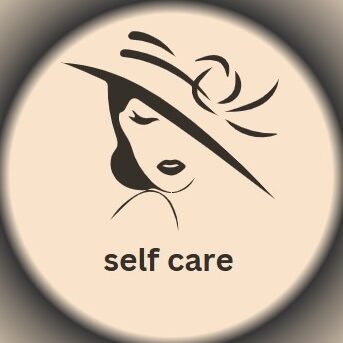Even on the busiest days, self-care is possible. Small practices, like deep breathing, stretching, or listening to your favorite music, can be quick but effective. Learn to weave simple self-care habits into your day, so you can feel centered and calm even when life is hectic.
Finding Joy in Everyday Moments
Finding joy in everyday moments is an essential aspect of self-care that can significantly enhance our overall well-being. In our fast-paced lives, it’s easy to overlook the small pleasures that surround us. By taking a moment to appreciate the little things—whether it’s savoring your morning coffee, enjoying a walk in nature, or spending quality time with loved ones—you can cultivate a deeper sense of happiness. Embracing these daily joys not only enriches your life but also reinforces the importance of self-care, allowing you to recharge and find balance amid the chaos.
The Importance of Self-Care: Nurturing Your Mind, Body, and Soul

- The Significance of Self-Care: Caring for Your Mind, Body, and SpiritSelf-care is an essential practice for maintaining balance and well-being in our fast-paced lives. It goes beyond pampering; it’s about nourishing your mind, body, and soul to lead a healthier, more fulfilling life
- .Nurturing Your Mind:
Mental well-being is just as important as physical health. Engaging in activities that reduce stress, such as mindfulness, journaling, or meditation, can help you manage emotions and increase mental clarity. - Taking Care of Your Body:
Physical self-care involves paying attention to your body’s needs, such as eating nutritious foods, staying active, and getting enough rest. These habits boost your energy, improve overall health, and help prevent burnout. - Healing Your Soul:
Soul care is about connecting with your inner self. This can involve practicing gratitude, spending time with loved ones, or doing something that brings you joy. It fosters a sense of peace and contentment.Incorporating self-care into your daily routine ensures you remain balanced and resilient, making it easier to navigate life’s challenges while maintaining a strong sense of well-being.This version keeps the key points intact while rewording and restructuring the content to be unique.
Daily Self-Care Practices
Morning Routine:
Start your day with mindful practices such as meditation, drinking water, enjoying a nutritious breakfast, or engaging in light exercise. These habits help set a positive, energized tone for the rest of your day.
Mental Health Breaks:
Incorporate short breaks during your day to give your mind a chance to relax. These moments help reduce stress, refresh your focus, and boost productivity, allowing you to approach tasks with clarity.
Evening Rituals:
End your day with calming activities like reading a book, journaling, or indulging in a skincare routine. These rituals promote relaxation and help ensure restful sleep, so you wake up feeling rejuvenated.
why is important self care
Self-care is crucial because it allows us to prioritize our well-being in a world that often demands so much from us. It’s about taking time to recharge and focus on our physical, mental, and emotional needs.Self-care is vital for maintaining a healthy balance in life. In our hectic routines, we often overlook the importance of taking care of ourselves, leading to increased stress and burnout. By dedicating time to self-care, we can improve our mental clarity, strengthen our physical health, and enhance our emotional resilience. It allows us to recharge, reflect, and face life’s challenges with a fresh perspective. Practicing self-care is not only about relaxation but also about investing in our overall well-being, helping us lead more fulfilling and balanced lives

2. Emotional Self-Care
Emotional self-care means recognizing and addressing your feelings. This can include journaling, talking to a friend, or practicing mindfulness. Emotional self-care allows you to process and release emotions rather than bottling them up. When you’re mindful of your feelings, you can respond to life’s challenges with more resilience and calm.
3. Mental Self-Care
Mental self-care involves activities that stimulate and strengthen the mind. Reading, learning new skills, and solving puzzles are ways to keep your brain active. Taking breaks from screens and social media also supports mental health by reducing stress. Keeping your mind engaged and challenged is a powerful way to maintain mental clarity and positivity.
4. Social Self-Care
Social self-care is about nurturing your relationships with family, friends, and your community. Spending quality time with loved ones, engaging in hobbies with others, and having meaningful conversations can bring happiness and reduce feelings of isolation. Healthy social interactions help build a support network, which is essential for emotional well-being.
Self care Tips Regular
- Prioritize Rest and Sleep: Quality sleep is essential. Set a regular bedtime, create a calming bedtime routine, and aim for 7-9 hours each night to recharge.
- Eat Nourishing Foods: Opt for a balanced diet rich in fruits, vegetables, whole grains, and proteins. Small, healthy snacks throughout the day can keep your energy up.
- Stay Hydrated: Drink enough water daily. Staying hydrated boosts energy, focus, and physical health.
- Exercise Regularly: Even a short daily walk or stretch can be rejuvenating. Find activities you enjoy—like dancing, yoga, or sports—to make it easier to stick with.
- Limit Screen Time: Set boundaries on social media and device usage. Take breaks to help reduce stress and improve mental focus.
- Practice Mindfulness and Meditation: Spend a few minutes each day focusing on your breath or meditating. This can reduce anxiety and help you feel more grounded.
- Make Time for Hobbies: Engaging in activities you love, such as reading, painting, or gardening, brings joy and relaxation.
- Build Connections: Foster positive relationships and spend time with people who support and uplift you. Socializing, even virtually, can improve your mood.
- Set Boundaries: Protect your time and energy by saying “no” when needed. Healthy boundaries are key to reducing stress.
- Practice Gratitude: Write down three things you’re grateful for each day. This small habit can shift your perspective and improve your mood.
- Declutter and Organize: A clean and organized space can help you feel calm and focused. Tackle small areas one at a time.
- Take Breaks: Step away from work or studies to recharge. Short breaks improve focus and prevent burnout.
- Treat Yourself Kindly: Practice self-compassion and avoid harsh self-criticism. Speak to yourself as you would to a friend.


Good ?V I should certainly pronounce, impressed with your web site. I had no trouble navigating through all the tabs as well as related information ended up being truly easy to do to access. I recently found what I hoped for before you know it at all. Quite unusual. Is likely to appreciate it for those who add forums or something, web site theme . a tones way for your customer to communicate. Nice task..
Thank you so much for your wonderful feedback! 😊 I’m really glad you had a smooth experience navigating the site. I appreciate your suggestion about adding forums or communication features — it’s definitely something I’ll think about. Some features I could consider adding might be a forum for discussion, a contact form for easier communication, or even a comment section for more direct interaction with my readers. Thanks again for your kind words and support! 🌟
Pingback: Earn from Home in Simple Ways – A Peaceful Approach to Self-Care & Income - thedailyselfcare.com
“Love this peaceful tip! Setting a time limit for self-care is such a simple yet effective way to find balance. I’ll definitely make time for a cup of tea! ☕ And the other posts sound great too, I’ll check them out!”
he blog was how do i say it… relevant, finally something that helped me. Thanks
“Thank you! I’m glad the content made sense to you and happy to know you’ve saved the site. More helpful posts coming soon!”